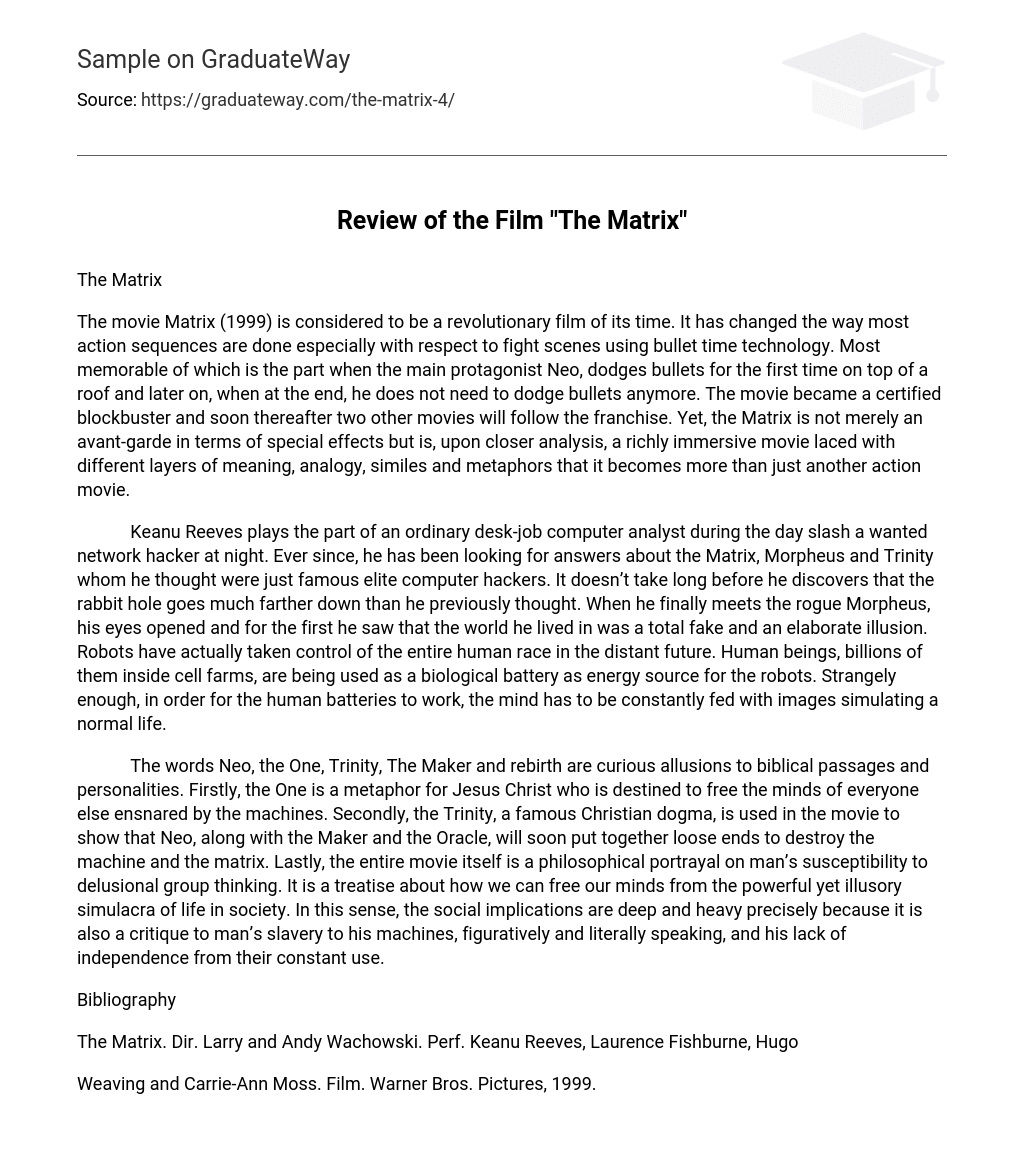The Matrix
The movie Matrix (1999) is considered to be a revolutionary film of its time. It has changed the way most action sequences are done especially with respect to fight scenes using bullet time technology. Most memorable of which is the part when the main protagonist Neo, dodges bullets for the first time on top of a roof and later on, when at the end, he does not need to dodge bullets anymore. The movie became a certified blockbuster and soon thereafter two other movies will follow the franchise. Yet, the Matrix is not merely an avant-garde in terms of special effects but is, upon closer analysis, a richly immersive movie laced with different layers of meaning, analogy, similes and metaphors that it becomes more than just another action movie.
Keanu Reeves plays the part of an ordinary desk-job computer analyst during the day slash a wanted network hacker at night. Ever since, he has been looking for answers about the Matrix, Morpheus and Trinity whom he thought were just famous elite computer hackers. It doesn’t take long before he discovers that the rabbit hole goes much farther down than he previously thought. When he finally meets the rogue Morpheus, his eyes opened and for the first he saw that the world he lived in was a total fake and an elaborate illusion. Robots have actually taken control of the entire human race in the distant future. Human beings, billions of them inside cell farms, are being used as a biological battery as energy source for the robots. Strangely enough, in order for the human batteries to work, the mind has to be constantly fed with images simulating a normal life.
The words Neo, the One, Trinity, The Maker and rebirth are curious allusions to biblical passages and personalities. Firstly, the One is a metaphor for Jesus Christ who is destined to free the minds of everyone else ensnared by the machines. Secondly, the Trinity, a famous Christian dogma, is used in the movie to show that Neo, along with the Maker and the Oracle, will soon put together loose ends to destroy the machine and the matrix. Lastly, the entire movie itself is a philosophical portrayal on man’s susceptibility to delusional group thinking. It is a treatise about how we can free our minds from the powerful yet illusory simulacra of life in society. In this sense, the social implications are deep and heavy precisely because it is also a critique to man’s slavery to his machines, figuratively and literally speaking, and his lack of independence from their constant use.
Bibliography
The Matrix. Dir. Larry and Andy Wachowski. Perf. Keanu Reeves, Laurence Fishburne, Hugo
Weaving and Carrie-Ann Moss. Film. Warner Bros. Pictures, 1999.





